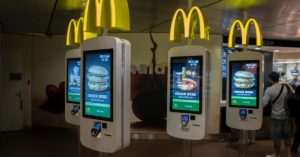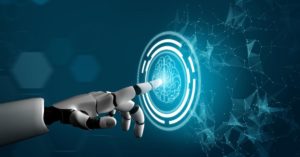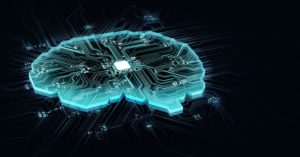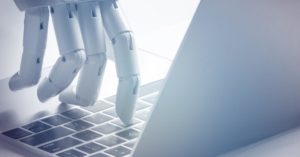Just ignore the economists, says a recent article in The Atlantic. Well, what about listening to economists concerning the devastating effects of price controls? If we ignore economists, then it would be easy to ignore market interventionists’ uncontrollable and intoxicating need to impose price floors and ceilings in marketplaces and the effects of these controls on society at large. What economists know that The Atlantic author does not know is that there are finite resources in this world, and everyone is out to get their share.You want a car; I want a car; while this could be a zero-sum game, if car producers decide not to produce cars anymore, if they produce less, supply goes down, and prices rise. Simple enough. Scarcity, the first law of economics, is
Read More »Articles by Raushan Gross
How Bad Economic Policies Drive Out Good Entrepreneurs
June 12, 2024Gresham’s law states that bad money drives out good money. Gresham’s law goes something like this: overvalued money that has less actual value circulates in a market economy, and the undervalued money with the same face value but whose metal has more value is hoarded and thus goes away. People move the good money out of an economy for future use in better markets, while the bad money is circulated and takes over as a common economic good.
What does Gresham’s law have to do with entrepreneurship, what we call the gig economy, and bad economic policy? Well, there have been recent changes in the classification of gig entrepreneurial contractors. Contractors are slowly losing their entrepreneurial independence in the freedom of what we call the gig economy. These
The Fate or Wealth of Nations: AI, Robotics and Automation
November 9, 2023The AI and robotics revolution continues. As entrepreneurs find new ways to use these things profitably, the overall wealth of nations increases.
Original Article: The Fate or Wealth of Nations: AI, Robotics and Automation
[embedded content]
Tags: Featured,newsletter
Read More »Would You Hire an AI-powered McRobot or a Human Employee?
September 11, 2023Young people often get their first jobs in fast food or in some sort of retail customer service. Young and not so young adults are aware that fast food jobs will equip them with the skills needed to acquire future employment. Some choose to make a career in fast food, while for others it is a means of developing skills and earning money to satisfy their needs and wants.
In the past, people could easily find employment making burgers and French fries, but soon enough it won’t be so easy. Artificial intelligence–generated robots can make burgers and fries, too, and many companies are turning to robotic kitchens staffed by “McRobots.” But McRobots are not competing with humans for employment the way one might think.
The good news is that recent industry projections
Prices, Food, Employment: AI and Robotics Are for Regular Folks, Not Just the Elite
May 12, 2023While politicians, media mavens, and the academic elite spread fear about artificial intelligence, AI is helping make life better for ordinary consumers.
Original Article: "Prices, Food, Employment: AI and Robotics Are for Regular Folks, Not Just the Elite"
[embedded content]
Tags: Featured,newsletter
Read More »The Fear of Mass Unemployment Due to Artificial Intelligence and Robotics Is Unfounded
March 23, 2023Ever since the Luddites rampaged through British textile factories in the early 1800s, people have feared that technology will result in mass unemployment. They were wrong then and are wrong now.
Original Article: "The Fear of Mass Unemployment Due to Artificial Intelligence and Robotics Is Unfounded"
This Audio Mises Wire is generously sponsored by Christopher Condon.
[embedded content]
Tags: Featured,newsletter
Read More »The Fear of Mass Unemployment due to Artificial Intelligence and Robotics Is Unfounded
March 16, 2023People are arguing over whether artificial intelligence (AI) and robotics will eliminate human employment. People seem to have an all-or-nothing belief that either the use of technology in the workplace will destroy human employment and purpose or it won’t affect it at all. The replacement of human jobs with robotics and AI is known as “technological unemployment.”
Although robotics can turn materials into economic goods in a fraction of the time it would take a human, in some cases using minimal human energy, some claim that AI and robotics will actually bring about increasing human employment. According to a 2020 Forbes projection, AI and robotics will be a strong creator of jobs and work for people across the globe in the near future. However, also in 2020,
Artificial Intelligence Can Serve Entrepreneurs and Markets
March 4, 2023In our technocratic age, it is easy to dismiss the latest technological developments as an avenue toward freedom, but some of them still bode well for markets.
Original Article: "Artificial Intelligence Can Serve Entrepreneurs and Markets"
This Audio Mises Wire is generously sponsored by Christopher Condon.
[embedded content]
Tags: Featured,newsletter
Read More »Artificial Intelligence Can Serve Entrepreneurs and Markets
February 24, 2023Marketplace competition is reaching a new high with the era of artificial intelligence—deep machine learning capabilities offered to the entrepreneur as specialized services. AI tools as services spanning the marketplace are popping up at a rate that is seemingly increasing firms’ productivity and competitiveness.
However, what implications do offering AI and deep learning as a service have for market operations, buyers, and sellers? When AI services and custom stacks of them become widely used tools in the marketplace, will the entrepreneur’s competitive advantage be access to AI as a service for everything? What is AI as a service (AIaaS) for everything?
Just imagine systems such as AIaaS, DevOps shortening the development cycle, and ChatGPT creating content in
Will AI Learn to Become a Better Entrepreneur than You?
February 23, 2023While artificial intelligence has its merits, it still cannot perform the job of the Misesian entrepreneur. That is a good thing.
Original Article: "Will AI Learn to Become a Better Entrepreneur than You?"
This Audio Mises Wire is generously sponsored by Christopher Condon.
[embedded content]
Tags: Featured,newsletter
Read More »Will AI Learn to Become a Better Entrepreneur than You?
February 18, 2023Contemporary businesses use artificial intelligence (AI) tools to assist with operations and compete in the marketplace. AI enables firms and entrepreneurs to make data-driven decisions and to quicken the data-gathering process. When creating strategy, buying, selling, and increasing marketplace discovery, firms need to ask: What is better, artificial or human intelligence?
A recent article from the Harvard Business Review, “Can AI Help You Sell?,” stated, “Better algorithms lead to better service and greater success.” The attributes of the successful entrepreneur, such as calculated risk taking, dealing with uncertainty, keen sense for market signals, and adjusting to marketplace changes might be a thing of the past. Can AI take the place of the human
What Is the Good Entrepreneur to Do?
April 6, 2020In a January 2020 Forbes Magazine article titled “Why Doing Good Is Good For Business” clearly left out critical information: who is the good or bad entrepreneur? According to the author, good entrepreneurs are doing good if their primary objective is not to make a profit. And bad entrepreneurs are doing bad if their primary objective is to make a profit.
Basically, the author suggested that, to be good, a business should not pursue profit and, along with it, customer satisfaction. Ignoring the profit motive is deemed more important than the entrepreneurial reward of profit that comes from providing a service or product to customers who demand value. The bad entrepreneur is only concerned with making money, surviving in the market, and serving consumers. The bad






